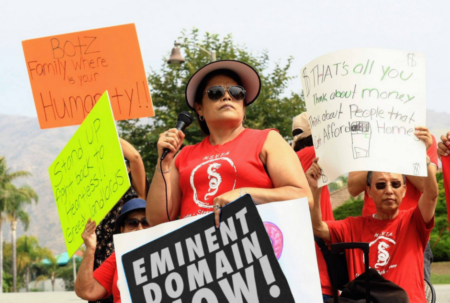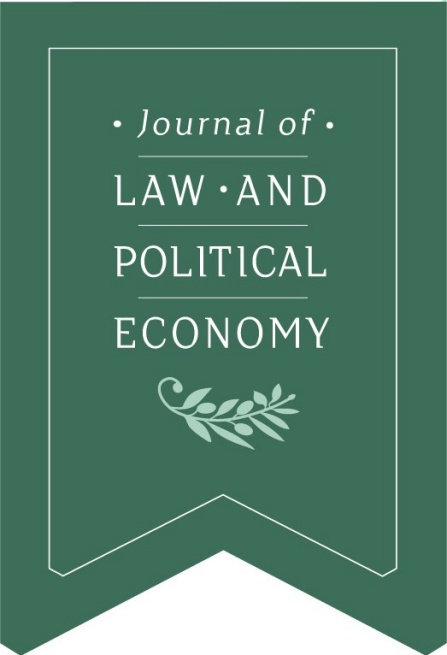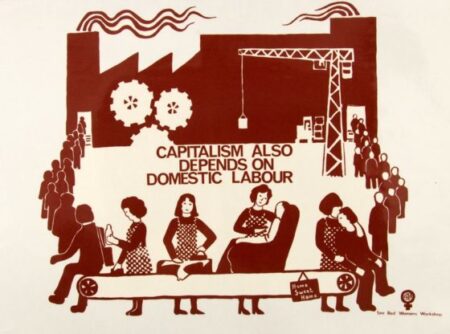
The Two Faces of American Freedom, Ten Years Later: Part Two
In celebration of the tenth anniversary of its publication, Henry Brooks interviews Aziz Rana on his influential book and what it might teach us about the legacies of populism.

In celebration of the tenth anniversary of its publication, Henry Brooks interviews Aziz Rana on his influential book and what it might teach us about the legacies of populism.

In celebration of the tenth anniversary of its publication, Henry Brooks interviews Aziz Rana on his influential book and what it might teach us about the legacies of populism.

You hear it everywhere: we need more “affordable housing.” It’s a seemingly uncontroversial call, and yet… a group of members of the LA Tenants Union were compelled to document the many and profound problems with the dominant model of privatized “affordable housing” in the United States.

Throughout this pandemic, transnational corporations and white parents alike have been sounding the “achievement gap” alarm under the guise of concern for “voiceless” Black and Brown children, but in service of their own neoliberal agendas. The students they speak of, however, can speak for themselves — and as they struggle through this time, with a fierce resilience that no young person should be forced to cultivate, their realities and their words call for more radical solutions.

The end of European empires during the mid-twentieth century and the independence of former colonies was many things: an oft-violent conflict between unequal opponents, a clash of ideas and ideologies, a struggle over rights and self-determination. Less frequently considered is that decolonization involved a dramatic movement of money and a legal reorganization of access to assets and investments. Having tracked these movements, I have found a surprising connection between decolonization and the expansion of tax havens and tax haven business during the 1950s and 1960s.

Despite the disproportionate impact of climate change on vulnerable populations who have been largely ignored due to their racialization, legal scholarship on climate displacement has often adopted a doctrinal approach that fails to analyze the underlying systemic causes of the climate crisis and its relationship to race and racism.

It is an exercise in futility to accept the legitimacy of colonial constructs such as race, gender, property, and state sovereignty, and then work to equalize relations defined in these terms. These constructs are, themselves, the “master’s tools,” designed to perpetuate relations of domination and subordination. Moreover, a more equitable division of the spoils of conquest, should that be possible, wouldn’t change the underlying power dynamics. This is because settler sovereignty has been defined precisely to prevent those under the state’s claimed jurisdiction from exercising self-determination, the right of all peoples to “freely determine their political status and freely pursue their economic, social and cultural development.”

Automated hiring systems are paradoxical. Although often the stated reason for adopting them is to curtail human bias, they frequently end up exacerbating the biases they’re meant to correct. Even as employment discrimination continues to morph with the introduction of new technologies, so, too, should the law change to meet it head to head.

At least since welfare reform, then, we have coexisted with a particularly monstrous work-life imbalance for low-income parents in which economic security, much less economic mobility for their children, remains forever out of reach. Americans have learned to live with punitive workfare as their only form of safety net assistance (or without it, as is the case for too many poor people ineligible even for subsistence benefits). Far from removing the crisis in care and work from polarized public debate, however, the pandemic has shown all too clearly that workfare ideology will not remain confined to the ever-shrinking welfare context, but has a life of its own.

Here at the Blog we’re trying out a new idea: inviting a rotating pair of “Guest Editors” to help steer our editorial process. Guest Editors will join our editorial board (scroll down) for six months at a time. Our first Guest Editors are Angela Harris, Distinguished Professor of Law at UC Davis, and Noah Zatz, Professor of Law at UCLA. In this post they introduce their goals.

Dear Readers, Today we’re bringing you a special Saturday edition of our ongoing covid-19 series. Take care, LPE Blog Your first stop after reading this post should be here, to listen to Amy Kapczynski and Gregg Gonsalves on The Dig podcast. They talk about how to survive this plague – the politics of public health and…

If “law and political economy” examines the role of law in constituting and regulating marketcraft and statecraft, one way of “doing” LPE is to look for the role of law in managing the processes by which capitalists extract value from activity putatively outside “the economy.”

NB: This post is part of a series in our Race for Profit symposium. Read all posts here. Keeanga-Yamahtta Taylor’s Race for Profit is an essential read not just for anyone interested in racism, housing segregation and post-Civil Rights era racial politics, but for anyone interested in understanding the American economy. It is impossible to understand contracts, property…

NB: This post is part of a series in our Race for Profit symposium. Read all posts here. As Keeanga-Yamahtta Taylor demonstrates in Race for Profit, housing exclusion, instability, and segregation are all racialized in nature, and sewn into the very fabric of American institutions, policies, and value systems. During the height of redlining in the mid-20th century,…

NB: This post is part of a series in our Race for Profit symposium. Read all posts here. The ascending slope of our current housing crisis is a good vantage point from which to think about Keeanga-Yamahtta Taylor’s new history of the federal response to an earlier point of crisis: she gives us reason to reconsider the role…